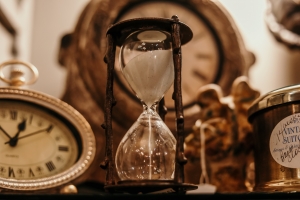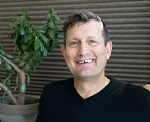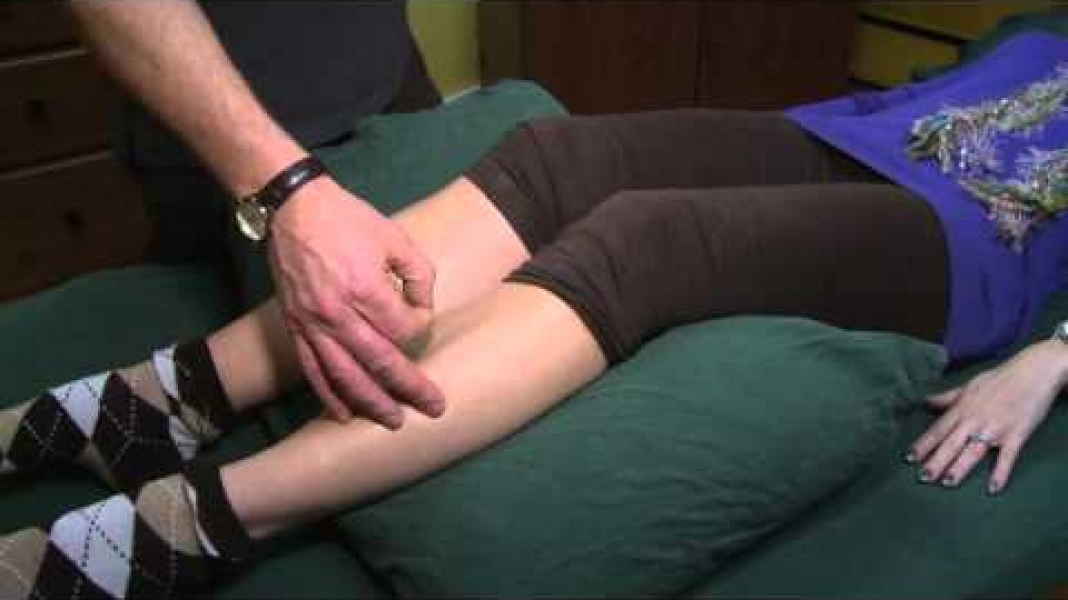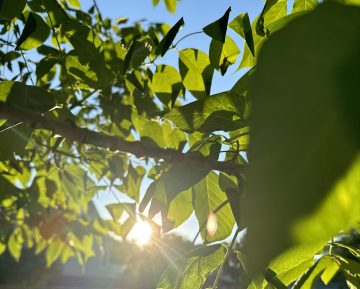
I am not sure exactly when I really started to notice and become interested in the passage of time, but I think it was as a child of around 9 or 10. I would lie awake at night, trying to go back to my earliest memory, and then letting my mind flow forward naturally, without effort, one memory connected to the next, until I came up to that current moment. Astonished at how this would occur without effort, I would soar through my experiences, weaving them into what I experienced as a seamless record of my life lived. Back then, I could do this all in one session, observing that each time I did this I would have a different path from that very first thought to the “now” moment.
This practice wasn’t done nostalgically, but rather from a place of curiosity, even awe, realizing the particular contentedness of my experiences. I was discovering my personal narrative I guess, as we would say nowadays. I never told anyone about this during my childhood; neither embarrassed nor proud – it was just something for me that I didn’t need to justify or share. From this practice, I acquired early in life a real sense that I was a product of my choices and circumstances, although back then I wouldn’t have had words for it (just images and feelings- maybe that’s why I didn’t speak of it?).
In my teenager years I stopped trying to remember every single event in my life in one sitting, partly because it took too long with an accumulation of more memories, but mostly because I got stuck on particular memories and couldn’t move off them easily like I used to. But what did come out of it was the discovery that time had different apparent speeds. For instance, it seemed that the block of time from about 9-12 years old for me possessed about triple the amount of memories (or at least details remembered) as from 13-18.
Like many, my teenager years were difficult, sort of waiting for them to be over and to begin being an adult. Analogously then, like Einstein’s theory of relativity, this could be applied to how one is experiencing and perceiving time as it flows by. I have heard many others say their “formative years” made for relatively more intense and bountiful memories. Indeed, these are the memories that we never forget. Even some elderly people with profound memory loss, who forget much of their adult lives, remember their childhoods with great detail and zeal.
Later, I would use this sense of time density as a feedback system to help me keep on track toward the things I cherish most in life.
Throughout my twenties and thirties I could rarely achieve satisfactory continuity of remembering the past without fast forwarding through whole large blocks of memories, rushing through the little details, or finding myself with whole parallel narrative universes that seemed disjointed and never to reconcile. Indeed, I was discovering the many facets of my life and how incoherent an examined human experience can be.
Before my fortieth birthday my grandmother on my mom’s side passed away – this really gave our family a serious sense for pause and reflection. Gran Hemming had been so influential to us all. Whenever I had visited her throughout the years, from my first memories to her death, regardless of my age, there seemed to be a timeless sense to reality with her. Her death had not only made me contemplate mortality, but also realize how fast my life was moving (having children does that to you too!). It was frightening to get the sense that I would be imminently dead at this pace!
I still live with these memories of our times at my grandmother’s house, from my first images as a child, to the last experiences I had with her there before she died. From beginning to end, they were rich with so many sensual and intense hues of nature, food, and people being and conversing together. Soundscapes and voices, touches and temperatures, visual imagery and landscapes, smells of meals and coastal tides all blended together in a particular synesthetic reality. After her death, I took a wordless vow that I would not waste my time any more. I didn’t really know what that meant, but I took very courageous leap of faith and sold the farm and left my beekeeping career to do a crazy mid-life transitional doctoral degree. Acupuncture would come later.
It was around this time that I realized that my sense of time in a day or moment had a lot to do with if I was really wanting to be there in that particular moment or not. Both in retrospect and on the fly, I came to realize the cost of waiting for things to happen in my life. Whole periods or memories became missing apparently in its worst expression, but more often just a lost sense of complexity and vibrancy to my memories. In these difficult times, life had dragged and the experience of time became heavy and slow. Time was my enemy. The boredom of jobs that I did not like (or did not like me), and those relations with others with whom I did not appreciate or just engaged superficially – these all had a greater cost that I was beginning to appreciate.
In contrast, when I was engaged in situations or projects or social dynamics in a deeply genuine way, even in conflict, but the type that I was really willing and ready to take on, then time went very quickly in the actual experience. And despite these being times of my adult life, like my younger boy years with my grandmother, they were every bit as vast and colourful, rich dimensions and inventories of living, vibrant details to savour. My experiences had become “formative” again.
This discovery disturbed me because I didn’t seem to have obvious momentary control over it. I couldn’t just simply choose which time frame I would be living. I can easily get caught up with my entitlements, or what others think I am or should be, my fears and deficiencies, what I owe to the world and what I deserve back (or not). I have come to see when I notice I am being preoccupied with these things, then I am disengaged or not perceiving what is really happening right before me. So here then time flows slowly in the moment, and the memories made are drab and few, I have come to realize that I am overlooking the best life has to offer me.
Yet on the other hand, when my days are go quickly, so fast sometimes as to be timeless, it is when I am very engaged in the details of what is happening before me. Here I really want to be in the things I am doing –this is where my richest observations of life are made, where the most intense and meaningful memories are formed.
So my perception of the flow of time has become a feedback system for me (waiting to see if the memories are memorable takes too long!). Sort of a barometer or litmus test. From this mindset, it allows me to shift the paradigm, and make adjustments in how I am doing things. So my perception of time can help me be more mindful of when to shift my focus — today, now.

Gord Grant, PhD, RAc
When I feel stressed and impatient with things in my life, I know I am not coming from the place where I derive a deeper sense of meaning or inspiration. It is then I go to nature to shift my sense of time. It could be going for a simple run or walk in the river valley. I love to see the striations of the sedimentary rocks that have been distorted and folded over millions of years by the settling silts of ancient rivers and living materials. I love how rivers run on and on as they have for eons, and how the seasons come and go as long as the earth has tilted on its axis. I think about the light from a star in the sky at night- likely a galaxy of millions of stars – coming to me just now from an illumination millions of years ago. Nature gives me an extended sense of time and how I fit in it.
The most perfect life lived: completely engaged and participating in what is happening, no awareness of time, and in what seems like a mere moment, in a blink of an eye opening, to arrive at one’s last breath, an old person, with boundless memories.




